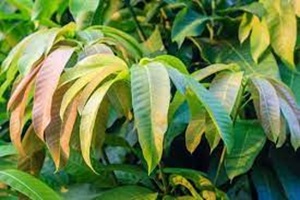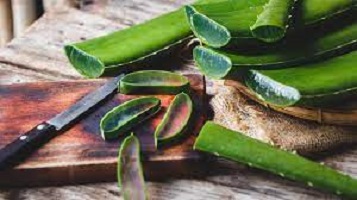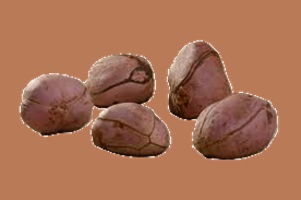Disadvantages of Mango Leaves
Disadvantages of Mango Leaves ~ Do mango leaves have any side effects?
It is deemed safe for humans to consume tea and powder made from mango leaves. Though no safety tests have been done on humans, the few research that have been done on animals point to no negative consequences.

Mango Leaves
Asian recipes frequently employ mango leaves.
They have been employed in conventional medical procedures due to their therapeutic advantages.
Mango leaves are rich in beneficial elements that are good for our bodies.
It is a wholesome food since it contains vitamins, minerals, and other nutrients.
Mango leaves are rich in nutrients; therefore, eating them or making mango leaf tea is beneficial for your health.
Magnesium, calcium, iron, protein, vitamin C, and carotenoids like beta-carotene are all present in mango leaves. All of these nutrients are vital to your body.
The advantages of mango leaves, their potential usage as a home cure, and the possible negative effects of taking too much of them are all covered in this article.
Disadvantages of Mango Leaves ~ What are mango leaves?
Surprisingly, mango leaves are equally vital to your health. The mango, in all its varieties, is the most widely consumed fruit in the world.
Not only are they nutritious, but they taste great too. Mangifera Indica is the scientific name for mango leaves.
Mango leaves have long been used in Ayurveda and traditional Chinese medicine for their medicinal properties.
The benefits of mango leaves are so numerous and varied in traditional medicine that they are highly valued.
Additionally, people use leaves as a natural remedy for a variety of illnesses.
Nutritional value of mango leaves
Since ancient times, traditional medicine has utilized mango leaves, which are well-known for their therapeutic qualities.
Apart from their health advantages, mango leaves are also quite nutrient-dense.
Mango leaves include important nutrients such as the following:
Antioxidants: Flavonoids, phenols, and tannins are found in mango leaves.
Free radical damage can lead to chronic diseases, including cancer, heart disease, and Alzheimer’s disease.
These substances help shield the body from this harm.
Fiber: Another excellent food source of dietary fiber is mango leaves.
In addition to being beneficial for digestive health, fiber also helps control blood sugar levels.
Digestive enzymes like lipase, amylase, and protease are found in mango leaves.
These enzymes aid in better digestion by aiding in food breakdown.
Minerals: Calcium, iron, and potassium are among the minerals found in mango leaves.
Iron is necessary for the synthesis of red blood cells, while calcium is necessary for healthy bones and teeth.
Potassium aids in maintaining the body’s normal fluid balance and controlling blood pressure.
Vitamins A, C, and E are among the many vitamins that are abundant in mango leaves.
While vitamin A is necessary for a strong immune system and clear vision, vitamin C acts as an antioxidant to protect the body from the harm that free radicals can cause.
Vitamin E contains anti-inflammatory qualities and is crucial for healthy skin.
Disadvantages of mango leaves
Most research has shown that mango leaf is safe and has no side effects.
However, if taken in excess or by those with specific medical issues, mango leaves may have negative effects, just like any other natural cure or prescription.
They are listed below:
Responses to allergies: For those who are allergic to mangoes, mango leaves may trigger an allergic reaction.
The symptoms of a mango allergy can range from moderate to severe, and they are very common.
Mango allergy symptoms include swelling, hives, rash, itching, and, in rare instances, anaphylaxis.
Mango leaves are toxic to people who are allergic to mangoes; thus, those people should not eat them or use them medicinally.
Negative interaction with medications: Mango leaves have the potential to interact with several drugs and reduce their efficacy.
Mangiferin and gallic acid, two substances found in mango leaves, may have an impact on how well drugs are absorbed and metabolized.
Before eating mango leaves or using them as a natural therapy, people who are taking medication for diabetes, high blood pressure, or cholesterol should speak with their healthcare physician.
Issues with the digestive system: Mango leaf consumption in excess can lead to gastrointestinal issues like upset stomach, diarrhea, and vomiting.
Tannins, which are substances found in mango leaves, have the potential to aggravate the digestive system.
Mango leaves are a natural remedy that people who are prone to stomach problems should only use in moderation and only after consulting their doctor.
Low blood sugar: Mango leaves have the potential to reduce blood sugar in those who have hypoglycemia or diabetes.
For those who have hypoglycemia, this can be hazardous, even though it might be helpful for those with diabetes.
Diarrhea, disorientation, and fainting are some of the symptoms of hypoglycemia, a disease in which blood sugar levels fall below normal.
When taking mango leaves as a natural medicine or in excessive quantities, those with hypoglycemia should talk to their doctor first.
An irritated skin: mango leaf paste or oil applied topically may irritate some people’s skin.
Mango leaves include substances, including flavonoids and tannins, that can irritate the skin and trigger allergic responses.
Before applying mango leaves topically, those with sensitive skin types should perform a patch test.
Conflicts between medications: Mango leaves raise the possibility of adverse effects and may interfere with some drugs.
Mango leaves, for instance, may interfere with drugs used to treat high blood pressure, diabetes, or cholesterol.
When consuming mango leaves or using them as a natural cure, people on medication should speak with their healthcare professionals.
How to use mango leaves
Mango leaves are generally consumed in tea, though they can be eaten raw as well. Follow these steps to make mango leaf tea:
- Wash ten to fifteen baby leaves, or even fresh, vibrant mango leaves.
- Cut the leaves into little pieces after chopping them.
- Put some honey and those pieces into the tea infuser.
- Fill the infuser with boiling water, and then cover it. Give the leaves ten or so minutes to steep.
- After taking out the infuser, transfer the water into a glass or cup.
Mango leaf is also offered as a supplement, extract, and powder.
The powder may be ingested when mixed with water, used topically, or added to the tub for a relaxing soak.
Furthermore, Zynamite, a capsule made from mango leaves, has 60% or more mangiferin.
A dose of 140–200 mg administered 1-2 times per day is advised.
Health benefits of mango leaves
Mentioned below are the best health benefits of mango leaves:
Controls diabetes: Mango leaves are delicate and may contain anthocyanins and tannins that may treat diabetes in its early stages.
Furthermore, it aids in the treatment of diabetic retinopathy and diabetic angiopathy.
A substance in the leaves called taraxerol 3-beta and ethyl acetate extract helps the body make more glycogen.
The leaves can be ingested as an infusion or powder.
Soak the leaves in water for the entire night, strain the leaves, and drink the water to help relieve the symptoms of diabetes. Hyperglycemia can also be treated using the leaves.
Reduces the risk of hypertension and blood pressure.
Mango leaves can help decrease blood pressure because they contain hypotensive qualities.
They aid in the treatment of varicose vein issues and the strengthening of blood vessels.
Tea made from mango leaves may assist with hypertension. As a result, hypertension-causing weak blood vessels are fortified.
Removes kidney and gallstones:
Mango leaves aid in the dissolution of kidneys and gallstones. Mango leaves should be dried in the shade and ground into a fine powder.
Stir in the powder and let it sit overnight. For kidney stone dissolution, drink this mixture every day.
Calms anxiety and stress:
Regrettably, anxiety is now among the most prevalent illnesses affecting young people.
The restlessness that accompanies anxiety irritates those who experience it as well as those around them.
An effective natural cure for restlessness is mango leaf.
A soothing bath in 2-3 cups of tea made from mango leaves helps ease uneasiness.
Relieves breathing difficulties:
Mango leaves are beneficial for a variety of respiratory issues. It is very helpful for those with asthma, bronchitis, and colds.
It is imperative to take action to eradicate respiratory issues because they significantly impact daily living.
Make a mixture by boiling mango leaves and adding honey. If you have a cough, try drinking this potion.
Other benefits of mango leaves include:
- Treats diarrhea
- It helps relieve ear pain
- Soothes burns
- Relieves hiccups
- Prevents a variety of gastrointestinal disorders
- It lowers blood sugar
- Effective in treating warts
- Suitable for use as a mouthwash
- Mango leaves get rid of facial spots
- Using mango leaves to treat fever
- Encourages healthy skin
- It potentially cures gastric ulcers
- Mango leaves may possibly have anticancer qualities
- It also cuts cholesterol down
- Helps to avoid anemia
- Mango leaves facilitate digestion
Mango leaves for weight loss
Mango leaves have been found in studies to help lower obesity by lowering the body’s fat stores.
It might even aid in the management of diabetes, which could result in a high metabolic rate that keeps you from gaining weight.
Mango leaves, like papaya, are packed with several important elements that aid in weight loss.
Mango leaves have several uses and benefits, one of which is weight loss because they contain the digestive enzyme papain.
Once more, it also boosts the synthesis of the hormone leptin, controls the body’s fat storage, and helps to flush out fat.
The active ingredient in mango leaves helps you feel satisfied and curb your appetite.
Mango leaf consumption tips:
Include mango leaves in your diet for about a month to help you lose weight.
It’s also a good idea to sip mango-leaf tea or water on an empty stomach.
Mango leaves for fertility
They are high in vitamins A, B6, C, and folate, all of which can improve fertility.
How to use mango leaves for high blood pressure
Mango leaves have hypotensive qualities that aid in decreasing blood pressure.
When used as part of a treatment plan for varicose veins, they aid in vascular health and alleviating the condition.
How to use: The leaves can be used as an infusion or dried and ground into a powder. Soak the leaves in a cup of water for the entire night.
How to use mango leaves for hair growth
One of the traditional, all-natural methods for rapidly growing hair is using mango leaves.
Vitamins C and A, which are abundant in the leaves, increase the creation of collagen, which is essential for strong hair.
The method gives luster to the hair, which makes it useful for dull hair as well. it also heals dandruff.
How to apply:
- Just grind some leaves off the mango to get a thick paste.
- Just add water until it reaches the desired level.
- Apply this as a hair mask to your hair and as a spa treatment at home.
Conclusion on the Disadvantages of Mango Leaves
Several antioxidants and other plant chemicals can be found in mango leaves.
The leaf of this tropical fruit may help with weight, digestion, and skin health, though research on these benefits is still in its early stages.
Mango leaves are frequently eaten and cooked in various regions. But they’re mostly used as a tea or supplement in the West.
They should be consumed with caution and after consulting with a physician, especially if they are on medication or have any underlying medical conditions, mango leaves can be a natural remedy.
FAQs on the Disadvantages of Mango Leaves
What disease do mango leaves cure?
When they are young, they have a reddish or bluish-green color, but as they get older, their color darkens.
Traditional medicine has utilized mango leaf extracts to treat a variety of illnesses, such as diabetes, syphilis, bronchitis, diarrhea, asthma, scabies, respiratory issues, and urinary disorders.
Does mango leaf have side effects?
It is deemed safe for humans to consume tea and powder made from mango leaves.
Though no safety tests have been done on humans, the few studies that have been done on animals point to no negative consequences.
Are mango leaves poisonous?
You can eat them, yes. Because young green mango leaves are so delicate, some cultures cook and consume them.
You may also brew tea or other supplements out of the leaves because they’re so nutrient-dense.
Disadvantages of Mango Leaves ~ What are the sexual benefits of mango leaves?
Plant chemicals included in mangos and their leaves serve as antioxidants, helping to prevent chronic illnesses.
Supplements: In addition to being abundant in vitamin C for immunity and vitamin A for the generation of sexual hormones, this delectable fruit also includes several other vitamins.
What happens when you boil mango leaves?
The tannins found in those leaves, known as anthocyanidins, may be useful in the treatment of type 1 diabetes.
Additionally, it contains ethyl acetate and 3beta taraxerol, which aid in the treatment of hyperglycemia (high blood sugar).
To use, place ten to fifteen mango leaves in a cup of water and boil.
What do boiled mango leaves cure?
Mango leaves are beneficial for several respiratory issues. It is very helpful for those with asthma, bronchitis, and colds.
Coughs can be efficiently treated by consuming a decoction prepared by boiling mango leaves in water with a small amount of honey.
It aids in the treatment of voice loss as well.
What are the benefits of eating fresh mango leaves?
The vitamin A, B, and C content of mango leaves are abundant. They are abundant in several other nutrients as well.
Mango leaves are rich in phenols and flavonoids, which give them strong antioxidant qualities.
These leaves have several therapeutic qualities and can be used to cure a variety of illnesses.
Is it safe to drink boiled mango leaves?
Mango leaves are generally consumed in tea, though they can be eaten raw as well.
Boil 10–15 fresh mango leaves in 2/3 cups (150 mL) of water to make your mango leaf tea at home.
If fresh leaves are unavailable, loose-leaf tea and mango-leaf tea bags are available.
What is the spiritual use of mango leaves?
They are frequently utilized in religious rituals for Hindus.
A single coconut and mango leaf are placed on top of the kalasha, or water container, before ceremonies.
The coconut symbolizes the Gods’ head and the leaf’s limbs.
Mango leaves are another common symbol of Lakshmi, the Hindu goddess of prosperity.
Are mango leaves good for the liver?
This study shows that the anti-inflammatory properties of mango leaf tea are achieved via upregulating NF-κB p65 and elevating the expression of AdipoR2, PPAR-α, and Cpt1 mRNA in the liver.
This drink can also improve oxidative stress and hepatic steatosis in overweight rats by stopping lipogenesis and lipid peroxidation.
Can I drink mango leaves on an empty stomach?
For eliminating dangerous toxins from the body, leaves are the most effective form.
How to apply: Gather a few mango leaves and pat dry.
Mix them with water and powder them. Store the water overnight and drink it first thing in the morning on an empty stomach.
Is it good to drink mango leaf tea every day?
It will lessen the frequency of hiccups.
For the treatment of stomach ulcers, you can also regularly consume warm water infused with mango leaves.
What not to eat with mango?
Mangoes with citrus fruits or those with a sour taste should be avoided as they may upset the body’s pH equilibrium.
Can we drink water after eating mango?
It is advisable to wait at least 30 minutes before drinking water if you are worried about doing so after eating mangoes.
This can assist in avoiding any upset stomach by giving your body more time to begin breaking down the meal.
Can you dry mango leaves for tea?
Mango leaf tea, an herbal tea from organic mango farms in Africa, can be made from dried mango leaves.
Mango leaf tea is 100% USDA-certified, non-GMO, gluten-free, vegan-friendly, and caffeine-free.
Can I add milk to mango leaf tea?
For example, you can blend yogurt, milk, frozen or fresh mango chunks, and mango-leaf tea to make a delightful and creamy smoothie.
A tropical and pleasant cocktail can be made by combining mango leaf tea with coconut milk, pineapple juice, and ice if you’re feeling particularly decadent.
How long to steep mango leaf tea?
After adding the water to the pot, steep it for roughly three minutes. Transfer into your mug and savor.
How to prepare mango leaves for weight loss?
The most popular way to eat mango leaves is tea; you can buy mango-leaf tea bags or loose-leaf tea.
Mango leaf is also offered in extract, powder, and supplement form.
If you can get fresh mango leaves, you can steep 10 to 15 leaves in 150ml of water to make your tea.
Can you juice mango leaves?
It’s quite easy to make this drink; all you need to do is boil 200–250 ml of water with 10–15 mango leaves.
After straining the mixture, let it sit overnight. As soon as you wake up, sip on this mango leaf juice.
To observe results, continue doing this consistently for two to three months.
Disadvantages of Mango Leaves ~ How do you preserve mango leaves?
Fresh mango leaves should be cut into uniform strips, dried in the sun for a few days until crisp, and then ground into a fine powder.
For later use, keep the powder sealed in an airtight container.
Disadvantages of Mango Leaves ~ Why do we put mango leaves on doors?
Its purpose is to drive evil spirits out of the location of the celebrations and to remove any negative energy from there as well.
Numerous gods and goddesses are represented by these lucky mango leaves.


